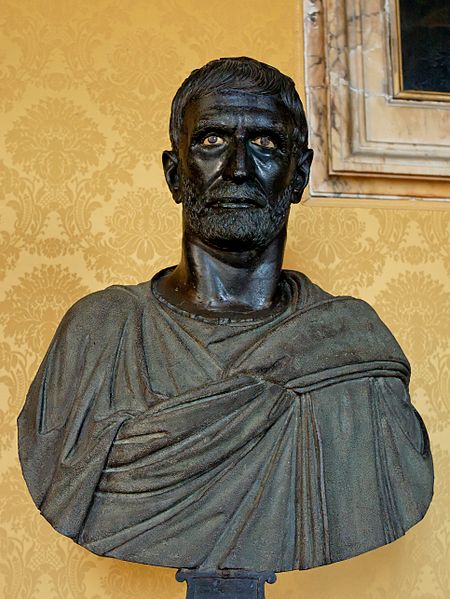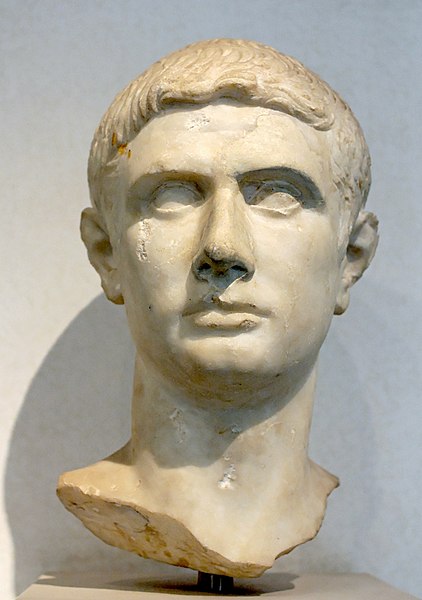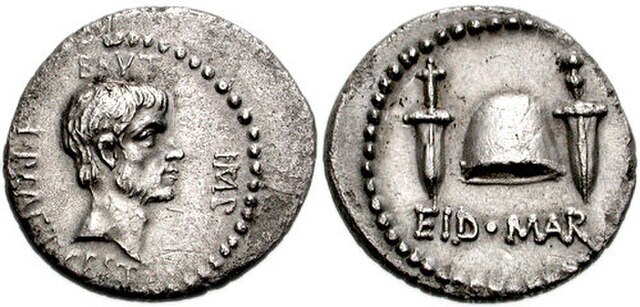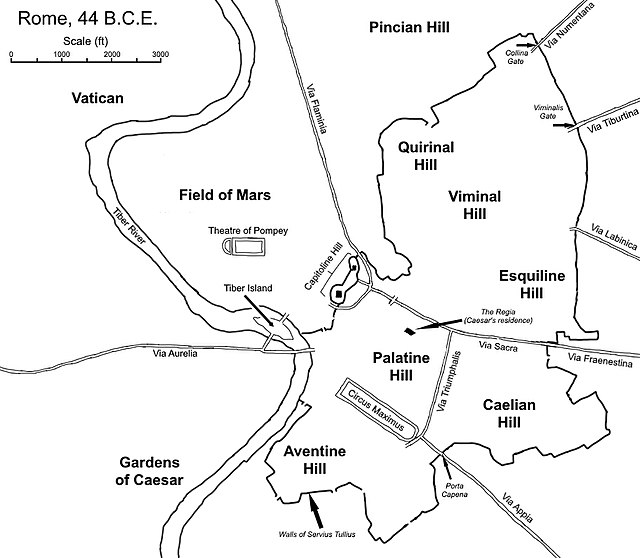Marcus Junius Brutus was a Roman politician, orator, and the most famous of the assassins of Julius Caesar. After being adopted by a relative, he used the name Quintus Servilius Caepio Brutus, which was retained as his legal name. He is often referred to simply as Brutus.
The Capitoline Brutus, supposedly depicting Brutus' ancestor Lucius Junius Brutus, who expelled the kings from Rome.
Denarius minted by Brutus, 54 BC, with the portraits of Lucius Junius Brutus (obverse) and Gaius Servilius Ahala (reverse).
Denarius of Brutus, 44 BC, depicting the personification of Libertas and Lucius Junius Brutus with lictors.
Marble bust, so-called Brutus, at the Palazzo Massimo alle Terme in the National Museum of Rome
Assassination of Julius Caesar
Julius Caesar was assassinated by a group of senators on the Ides of March of 44 BC during a meeting of the Senate at the Curia of Pompey of the Theatre of Pompey in Rome where the senators stabbed Caesar 23 times. They claimed to be acting over fears that Caesar's unprecedented concentration of power during his dictatorship was undermining the Roman Republic. At least 60 to 70 senators were party to the conspiracy, led by Marcus Junius Brutus, Gaius Cassius Longinus, and Decimus Junius Brutus Albinus. Despite the death of Caesar, the conspirators were unable to restore the institutions of the Republic. The ramifications of the assassination led to his martyrdom, the Liberators' civil war and ultimately to the Principate period of the Roman Empire.
The Death of Julius Caesar by Vincenzo Camuccini, c. 1805
The Ides of March coin, a Denarius portraying Brutus (obverse), minted in 43–42 BC. The reverse shows a pileus between two daggers, with the legend EID MAR (Eidibus Martiis – on the Ides of March), commemorating the assassination.
Possible bust of Julius Caesar, posthumous portrait in marble, 44–30 BC, Museo Pio-Clementino, Vatican Museums
The city of Rome, 44 BC








